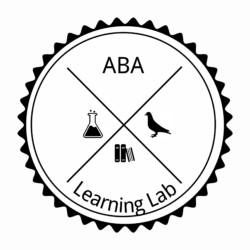By James Macon, M.Ed., BCBA
One of my best friends, a fellow Behavior Analyst, had a horrible knack for getting pulled into legal disputes within his professional work. It wasn’t because his work was questionable… far from it; he was (and is) one of the best Behavior Analysts I’ve ever known. In a comical sense, he just had really bad luck. None of the legal disputes ever had any serious impact besides some immediate stress, but it did provide a very real learning opportunity for me. Always be prepared to defend your work as if you would have to go to court. The BACB says just as much in the Professional and Ethical Compliance Code for Behavior Analysts. Here’s a real life example of why you need to maintain your records, just in case.
Years ago, my friend was consulting in a school, writing Functional Behavior Assessments (FBA) and designing Behavior Intervention Plans (BIP) for some pretty complex kiddos. One of the new clients on his caseload was a young man receiving services to hopefully transition to a less restrictive school program. He appeared to be well on his way, as his performance in the classroom was excellent.
As any good BCBA would do, my friend went to observe his new client in the classroom. He observed the classroom’s direct support staff running programs, which mostly looked like discrete trial teaching (DTT). His new client was doing excellent, getting nearly every program correct, and subsequently being the beneficiary of a pretty dense schedule of reinforcement.
When my friend jumped in to test for generalization across instructors, he found he could not replicate the results. His client went from 100% correct responding to less than 50%. Always the steadfast scientist-practitioner, my friend thought that this could be explained by the novelty of a new instructor, so he asked the direct support staff to jump back. This time though, he asked the staff to place the stimuli in specific places, be it left, right, or center, and to ensure that the items were rotated between trials of DTT.
My friend quickly realized that the staff had been placing demands in such a way that the target correct response was nearly always to the right of the student. On the off chance occasion that it wasn’t to the right, the staff had been using a subtle hand gesture to unintentionally prompt the correct response. The staff appeared legitimately surprised, and believed that he had been “doing ABA” correctly. Unfortunately, his implementation of DTT did not include rearranging the stimuli during inter-trial intervals, and he nearly always unintentionally prompted the target response when the student appeared “stuck.”
On a hunch, my friend started probing the students mastered skills. He found that his client could not perform the majority of the goals and programs that he had “mastered” in the past. When he brought this to the teacher’s attention, there was understandably a level of disbelief. After all, this had been a top performer in the class. His report cards and weekly progress notes always showed near perfect scores, and his parents were happy as it meant their child was 1 step closer towards a less restrictive school.
Using behavioral skills training (BST), my friend set out to remedy the situation. He explained each component of DTT and then modeled the correct performance with the student. He gave immediate performance feedback while the staff worked with the student, continuing until the staff demonstrated mastery of the procedures. After he was confident the staff could run programming, he trained the teacher on how to correctly monitor the staff’s performance through the use of a fidelity assessment, ensuring accuracy with DTT and the students BIP.
All seemed well. A couple weeks later, my friend gets a call from an attorney for the parents. They had just received a weekly progress note showing their child’s performance dropping from 100% down to below 50%, across nearly every target and program. The parents were outraged. It was as if their child hadn’t learned anything. Even worse (for my friend), the parents argued that their child was a good student until the behavior analyst started working on the case.
The parents saw the correlation of new behavior analyst with really bad grades and assumed the 2 were related. They blamed my friend, and believed that it was him who was responsible for the reversal in his academic performance. They were threatening to sue unless they could improve his performance back to his prior 100% levels.
The poor grades and the onset of a new Behavior Analyst were related of course, but only because my friend discovered that the direct support staff wasn’t running DTT correctly. When the time came to meet with the family and attorney, he fortunately had a wealth of data to show, including the DTT data and the retraining data from BST.
Had he not had that data, the family likely wouldn’t have accepted his analysis of events. Before meeting with him, they were convinced that legal action would be necessary to resolve the issue, and were willing to take him to court. While this may be an anomaly for most of us (most parents aren’t that “lawyer-happy”) the lesson was nonetheless an important one. Always be prepared to defend your work through accurate data collection, and maintain your records with enough detail that could be used in court.

